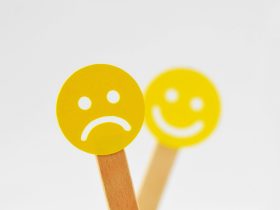When thoughts and emotions influence behavior and vice versa, it can be challenging to clearly define the difference between mental health and behavioral health. As you delve into the intricacies of your complex nature, it’s important to understand the nuances that separate these two domains.
Within you resides a profound complexity encompassing thoughts, emotions, habits, impulses, goals, morals, ethics, and numerous other aspects. These various elements together constitute your individual identity. However, in the pursuit of scientific understanding, a distinct line had to be drawn between the realms of mental health and behavioral health.
Unpacking the Contrast: Mental Health vs. Behavioral Health
Mental health is all about how your psychological state impacts your overall well-being, whereas behavioral health focuses on how your actions influence your well-being. While many, including mental health professionals, use these terms interchangeably, it’s crucial to recognize that mental health encompasses more than just behaviors, and behaviors can impact more than just mental health.
Understanding Mental Health and Behavioral Health
Mental health, a key aspect of your overall well-being, encompasses various elements, including:
- Identity
- Perception
- Emotions
- Morality
- Ethics
- Empathy
- Resiliency
- Personality
- Brain health
- Cognitive function
- Mental health disorders
Your feelings, perceptions, and thoughts, independent of actions, collectively define your mental health. However, it’s essential to distinguish that while mental health can impact behaviors, it is not synonymous with behavioral health.
Behavioral health, closely linked to mental health, examines everyday behaviors and their effects on both physical and mental well-being. It takes into consideration factors such as:
- Reactions
- Habits
- Lifestyle
- Social interactions
- Cultural practices
- Coping strategies
In contrast to mental health, behavioral health does not primarily focus on psychological sensations but rather explores how behaviors influence both mental and physical health. It’s important to note that behavioral health can exist independently of mental health, such as studying how habits like overeating contribute to weight gain and chronic health conditions.
Relationship Between Mental and Behavioral Health
Mental health constitutes a vital aspect of behavioral health, often serving as the underlying motive behind specific behaviors, or their absence.
To illustrate, a study conducted in 2018 revealed that favorable mental health traits, such as high self-esteem, were predictive of more favorable behavioral outcomes among disadvantaged urban youth.
However, it’s important to note that behavioral health can also intersect with mental health.
For instance, the act of depriving oneself of sleep represents a behavior with both physical and psychological repercussions. Research indicates that insufficient sleep significantly heightens the likelihood of experiencing regular mental distress.
From a behavioral standpoint, sleep deprivation exerts a substantial impact on overall well-being. Additionally, it has been linked to conditions such as obesity, diabetes, and cardiovascular disease.
Why is Behavioral Health Significant?
Behavioral health holds significance because it encompasses a broader perspective, encompassing mental health as well. It examines how a single behavior can serve as both a catalyst and a consequence, with repercussions that span multiple dimensions of well-being.
Enhancing Your Behavioral Health
Improving behavioral health revolves around fostering advantageous behaviors in all facets of everyday life.
Initiating Lifestyle Changes
One of the initial areas for enhancing behavioral health is within the realm of lifestyle. Positive lifestyle behaviors encompass elements such as:
- Ensuring quality sleep.
- Maintaining a balanced diet.
- Engaging in regular exercise.
- Staying adequately hydrated.
- Managing body weight.
- Practicing good hygiene.
You need not address all of these simultaneously. For instance, if you tend to stay up late, consider starting by making a conscious effort to retire to bed earlier than usual. Likewise, if you typically consume minimal water during the day, acquiring a measured water jug might encourage you to stay properly hydrated.
Developing Interpersonal Skills
Interpersonal skills pertain to how you interact with those in your social circle. You need not become an extrovert, but cultivating robust interpersonal skills can help counteract isolation and its associated consequences.
To enhance your interpersonal skills, consider:
- Actively listening to others.
- Respecting differing viewpoints.
- Promoting open and honest communication.
- Expressing gratitude.
- Setting healthy boundaries.
- Engaging in small acts of kindness.
Practicing empathy.
Unsure where to begin? It can be as straightforward as treating a valued colleague to a cup of coffee on your way to the office.
Enhancing Coping Mechanisms
Coping mechanisms serve as your strategies for handling challenges. When facing stress, for instance, opting for a walk instead of binge eating can significantly impact your overall health.
You can experiment with beneficial coping mechanisms, including:
- Meditation.
- Mindfulness practices.
- Regular exercise.
- Deep breathing exercises.
- Engaging in mind-body activities like yoga or tai chi.
- Listening to music.
- Creating art.
- Journaling.
- Engaging in conversations with loved ones.
- Prioritizing self-care.
Exploring the Realm of Mental Health
Given the interconnected nature of mental health and behavioral health, engaging with a mental health expert can play a significant role in enhancing behavioral well-being.
When you find yourself entrenched in a particular behavior or habit, a therapist, for instance, can assist in uncovering the underlying reasons behind its integration into your life.
As the root causes begin to mend, you can then embark on the journey of cultivating fresh, advantageous behaviors.
In Conclusion
It’s crucial to recognize that mental health and behavioral health, while closely intertwined, are distinct concepts. Mental health revolves around your emotional and psychological well-being, delving into the essence of your identity.
On the other hand, behavioral health examines the relationship between mental health and specific behaviors, but its scope extends to the broader impact of actions on both physical and psychological wellness.
In many cases, enhancing one facet can positively influence the other. If you’re uncertain about where to commence this journey, seeking guidance from a mental health professional can be a valuable first step.















Find Us on Socials